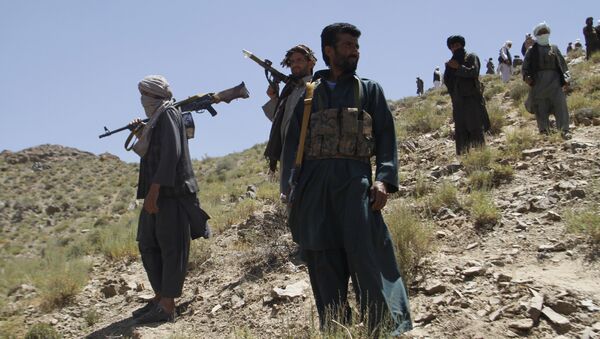A Senior Taliban official has described peace talks held last month with the US as “very helpful” in envisaging a path out of Afghanistan’s seventeen year old war.
The leader, from an organisation within the Taliban* called ‘Quetta Shura,’ has been quoted as saying that both sides intend to hold the next round of talks in September, and that these “will be more specific and focused on key issues.” He also added that, “once the breakthrough is started it will be stunning for all.”
READ MORE: US-Taliban Talks: Scholar Explains Why US Can't Do Without Pakistan's Help
The comments come on the heels of a string of reports since the end of July, which describe an unprecedented face-to-face meeting held in the Qatari capital, Doha, between a Taliban delegation and officials from the US State Department, led by senior diplomat Alice Wells. Representatives from the Islamist insurgency were quick to laud discussions at that time too, describing them as “very positive.”
The Taliban has long refused to hold discussions with Ashraf Ghani’s government in Kabul until it is given the opportunity for direct talks with the US. However, leading talks for reconciliation between the central government in Kabul and the Taliban has long been anathema to Washington, which has maintained that it would not heavily involve itself in “Afghan-led, Afghan-owned” negotiations. Echoing that sentiment in early July, Secretary of State Mike Pompeo proclaimed that the Trump administration would “support, facilitate and participate in peace discussions, but peace must be decided by the Afghans and settled among them.”
READ MORE: US-Taliban Talks Aside, Afghanistan's Future 'Going To be Tough' in Near-Term
Yet, as time has ticked by, reports suggest that President Donald Trump has grown impatient with the tactical stalemate on the ground and NATO’s inability to retake chunks of territory controlled by the Taliban. According to the Special Inspector General for Afghanistan Reconstruction, as of January 30 2018, approximately 56.3% of Afghanistan was under the Taliban’s sway. Frustration at such a reality may have culminated in the US president’s decision to dispatch envoys to Afghanistan in early July to open up channels for backdoor diplomacy.
Despite the optimism among the Taliban’s echelon, fighting with the Afghan Security Forces continues unabated. In the early hours of Friday, the group’s fighters launched an assault for control of the eastern city of Ghazni. According to the country’s 1TV television station, so far 100 people have been killed. In an effort to repel the advance, the US Air Force launched a series of air strikes on Taliban positions, raising questions as to how likely it is that these old foes are ready to sit down at the negotiating table.
READ MORE: US May Not Accept Taliban Demand That All Foreign Forces Leave – Analyst
*terrorist groups banned in Russia




